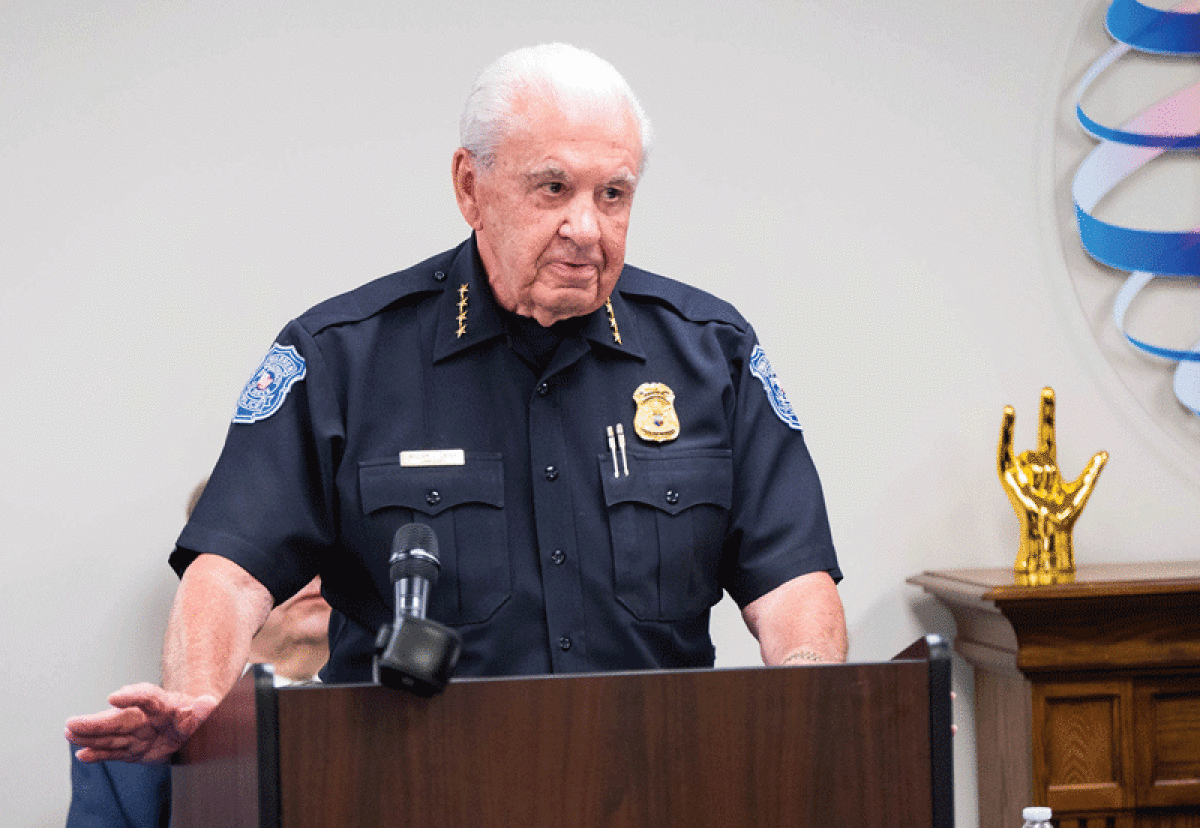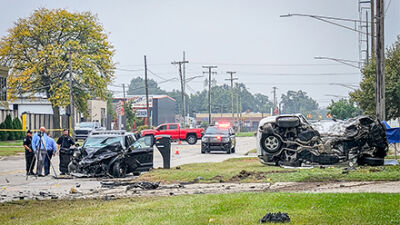WARREN — The Warren Police Department is partnering with an interpreting service to train its officers to better deal with deaf, hard-of-hearing and low-English-speaking communities.
In a press conference Aug. 15, Warren Police Commissioner Bill Dwyer announced a partnership with Global Interpreting Services to launch an E-learning course designed at training its officers and civilian staff to effectively communicate with people who are deaf, hard of hearing or who aren’t strong in the English language.
“Effective communication is so important in every facet of life, but extremely important when dealing with peoples’ lives and liberty,” Dawn Flanigan, Global Interpreting Services’ President and CEO said at the press conference. “People are nervous when dealing with authority figures and even more so when they are in a disadvantage.”
A barrier such as the lack of ability to properly communicate, or being unable to recognize when there is a communication barrier in a stressful situation, could lead to further miscommunication, and in some instances has resulted in injuries and false accusations, she said.
The program, called Have You Heard?, is a three-part online course based on Global’s in-person workshops. The program will provide officers with Americans with Disabilities Act and Title VI compliance, guidance and real-world applications.
Officers and staff will be trained to recognize the characteristics of an individual who is deaf, hard of hearing or with limited English skills. They will also be able to establish communication with those populations and comply with federal, state and local guidelines for providing services to those populations, including the ADA and the 1964 Civil Rights Act.
Neither the department nor Global Interpreting Services has the ability to bring all of the officers in for a live seminar, so online learning is the best method for the department.
Giving officers training in de-escalation and creating diversity training have been a priority of the department for several years, Dwyer said, but the department has never had training like this.
“Partnering with Global is really a big thing for us and for Global, and I think that when you look at the deaf or hard of hearing or those that aren’t, quite frankly, in the area that (gives) them the knowledge to be able to continue with their lives sometimes, and then they’re faced with law enforcement, law enforcement has to know that these people need help,” he said. “We want to be able to communicate.”
Flanigan said the training is important because there have been instances where miscommunications or misunderstandings between officers and citizens can cause false information to be shared, which could lead to people being detained incorrectly.
“There’s been … so many times people have been even shot or killed because they did not know that the person was deaf or didn’t understand English, and they were just simply trying to communicate instead of flashing a gang sign, or they thought that they were acting aggressively when they were really just trying to say, ‘I don’t understand you,’” she said.
Because of the speed at which a typical traffic stop could escalate, the training is important, Dwyer said.
“A lot of the situations that occur on the street is because of a misunderstanding or lack of communications between that particular driver and police officer trying to do his job, or her trying to do her job,” he said.
“So that’s why it’s important. In this way, I think we’re going to have less problems because of the training, and it’s going to really enhance our ability to communicate with those that are in need and have a better (understanding) of those that are in need.”
Dwyer said the training is immediately available and will continue until everyone in his department has completed it.
 Publication select ▼
Publication select ▼






















